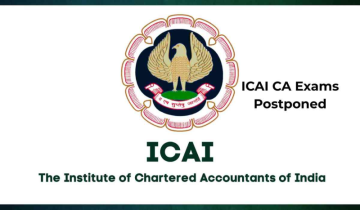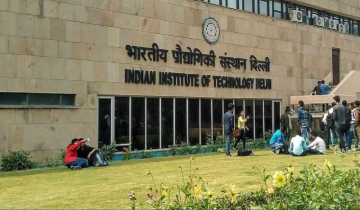The definition of a “successful” career is no longer limited to a handful of conventional choices like Engineering or Chartered Accountancy (CA).
For decades, these two paths have dominated the Indian career landscape, often seen as the gold standard of stability, prestige, and financial security. However, as industries diversify and technology reshapes the job market, a growing number of students are realizing that there is a whole universe of exciting, fulfilling, and equally lucrative career options beyond engineering and accountancy. The notion that success comes only through traditional careers is being actively challenged by the rise of new-age professions, creative industries, and unconventional job roles that align better with an individual’s passions, strengths, and values.
This shift is being driven by a variety of factors.
The gig economy, digital transformation, and the increasing emphasis on personal branding and soft skills have opened doors to careers that didn’t even exist a decade ago. From digital marketing, infrastructure engineering and UX design to sports management, culinary arts, and ethical hacking, today’s youth have access to a broader, more dynamic canvas upon which to paint their future. Moreover, globalization has expanded the scope of opportunities, allowing people to build careers that are not bound by geography or rigid educational requirements. Whether it’s creating content on YouTube, becoming a mental health professional, or working as a wildlife photographer, people are discovering that it’s possible to blend passion with profession.
This doesn't mean that engineering and CA are obsolete or inferior. In fact, they remain vital professions with their own rewards. However, they are no longer the only avenues worth pursuing. For those who feel creatively inclined, emotionally intelligent, entrepreneurial, or socially driven, forcing oneself into technical or financial streams can lead to dissatisfaction and burnout. Choosing a career should be a deeply personal decision—one based on a clear understanding of one’s interests, aptitudes, lifestyle goals, and values.
In this article, we explore 20 diverse careers for those who do not wish to pursue engineering or CA. These options span a variety of fields—creative arts, humanities, social work, media, technology, and beyond. The goal is not just to list alternatives, but to inspire you to think more broadly about your future, and to empower you to carve your own path with confidence.
Whether you’re a student confused about your next steps, a parent helping your child decide, or someone looking to switch careers, these ideas can offer clarity and inspiration. After all, the most rewarding careers are often those that align with who you are—not just what society expects you to become.
-
Product tester: aid businesses in evaluating the functionality and quality of their products before putting them on the market. Having a bachelor's degree in software development, marketing, or another relevant program, such as engineering, can be advantageous for working as a product tester.
-
Manager of Human Resources: responsible for the management of the company's human resources, which includes recruiting, training, and relations with employees.
-
Graphic Designer: Logos, website layouts, infographics, brochures, magazine layouts, and other marketing materials are all created by graphic designers using innovative software programs. A career in graphic design might be a good fit for software engineers and other professionals in engineering, especially if they are creative thinkers and have used software to design blueprints before.

-
Social Media Manager: responsible for the management of a company's social media accounts and the creation of engaging content to promote the website and raise brand awareness.
-
Content Writer: responsible for writing content for a variety of platforms, including marketing materials, blogs, websites, and social media. After working in engineering, a person should be able to write well, understand SEO, and use video and photography equipment to become a content creator.
-
Public Relations Specialist: responsible for projecting a positive image of the company through various channels of communication.
-
Events Planner: organizing and managing events like weddings, conferences, and corporate gatherings.
-
Financial Analyst: responsible for analyzing financial data and offering suggestions to businesses to assist them in making sound business decisions.
-
Sales Manager: responsible for developing sales strategies to achieve revenue goals and managing a company's sales team.
-
Digital Marketer: responsible for coming up with and putting into action strategies for online marketing, such as email marketing, social media marketing, and search engine optimization (SEO).
-
Business Analyst: responsible for conducting an analysis of the business's operations and making recommendations for increasing profitability and efficiency.
-
Web designer: responsible for creating, constructing, and maintaining websites and web applications.
-
Head of the Project: responsible for project management from beginning to end, including planning, scheduling, and team member coordination.
-
Professor: In order to assist students in developing the knowledge they need to pursue careers, professors work for colleges and universities. They teach in front of a group of students, make lesson plans, assign work, and grade assignments.

-
Nurse: responsible for providing patients with medical care in a variety of settings, including private practices, hospitals, and clinics.
-
Lawyer: accountable for advising and representing clients in a wide range of legal matters. LLB is an excellent option for 12th-grade commerce majors with a lot of future potential for all students.
-
Psychologist: accountable for evaluating, diagnosing, and treating mental health issues. Conduct scientific research on brain function and behavior. People should be observed, interviewed, and surveyed. Diagnose disorders and identify psychological, emotional, behavioral, or organizational issues.
-
Chef: responsible for menu planning, food preparation and cooking, and staff management in the kitchen.
-
Photographer: responsible for editing images for various applications, including print and digital media, using a camera.

-
Journalist: responsible for conducting research, writing stories, and reporting them for print, online, or broadcast media.
As we reach the end of our exploration into 20 diverse career paths outside of engineering and chartered accountancy, one key message stands out: the world is full of possibilities, and your career doesn’t have to follow a conventional script to be meaningful, impactful, or successful. Each of the options discussed—from graphic design to psychology, event planning to public relations, culinary arts to data analytics—has its own set of challenges and rewards. What ties them together is the common thread of personal fulfillment, the chance to make a difference, and the opportunity to build a career aligned with your unique identity and aspirations.
It’s important to recognize that every career has its learning curve. Just as engineers and CAs spend years honing their craft, alternative career paths also require dedication, upskilling, and perseverance. Success doesn’t come overnight in any field. But the advantage of choosing a path that genuinely interests you is that the journey becomes more enjoyable and sustainable. When you're passionate about what you do, challenges feel like growth opportunities rather than obstacles. You're more likely to innovate, persist through tough times, and build a reputation that sets you apart.
Moreover, in a world where automation and AI are reshaping industries at an unprecedented pace, many traditional jobs are being redefined—or even replaced. Creative thinking, emotional intelligence, adaptability, and storytelling are becoming more valuable than ever. Careers once considered “non-traditional” are increasingly becoming the norm, particularly as the internet levels the playing field, offering platforms for self-employment, freelancing, content creation, and remote work. It is now entirely possible to build a thriving career without ever stepping into a corporate office, so long as you're clear about your goals and willing to put in the effort.
Another encouraging trend is the growing societal acceptance of alternative career choices. Parents, educators, and employers alike are starting to acknowledge that success looks different for different people. The narrative is shifting from “What do you do?” to “What do you enjoy doing—and how can you turn that into a career?” This is a powerful transformation, and one that allows people to live more authentic, empowered lives.
So, if you're someone who doesn’t resonate with engineering or CA, know that you’re not alone—and you're definitely not without options. The key is to explore, experiment, and educate yourself about what’s out there. Talk to people in different professions, take up internships or side projects, and never be afraid to question the status quo. Remember, the most successful people are not always the ones who followed the “safe” route, but the ones who had the courage to follow their own.
Your career is not just a job. It’s a huge part of your life’s story. Make sure it’s one that you’re excited to write.
© Vygr Media Private Limited 2022. All Rights Reserved.

























